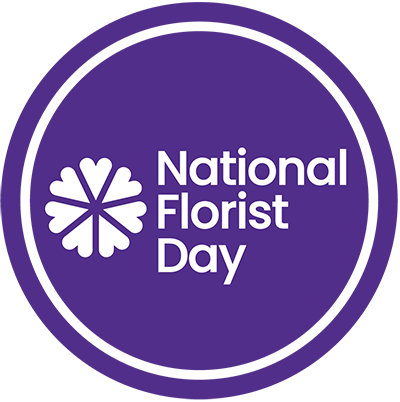
Read the small print! Florist passes on lesson learned.
Sarah Loughrey-Jennings, who runs successful events company Hiding in the City Flowers, contacted us to give our readers a heads up on an insurance problem she discovered the hard way!
In her own words she explains why checking the policy is sooooooooooooo important.
As a florist who started at their dining room table I’ve had to learn as I go along, usually from the successes and the mistakes! As such, given my recent experience and speaking with many of my florist counterparts, I wanted to highlight a possible black hole in the world of insurance.
I know it isn’t a very sassy topic and certainly not as lovely as the flowers. But in the summer I came face to face with a problem that I think may be affecting others who may do not even realise.
The Background
Since I started Hiding in the City Flowers I’ve had insurance. I started out small and, as the business grew, incrementally I’ve been asked to increase my Public Liability. With success Hiding in the City Flowers has grown and now we work on larger scale projects, in bigger buildings, with ever expanding design ideas and where huge statement overhangs suspended from ceilings are now the norm.
I’ve reviewed my Public Liability at each annual renewal point and blissfully thought all was well with our insurance cover. With our success we're now required to have £10 million cover and with the advent of all the complex rigging we now find ourselves building to support floral overhead work, this is what I felt comfortable with too in our ever increasing litigious society.
The employment structure of our business means we have very few permanent employees, but rely heavily on our talented regular freelancers to assist with our event installations and builds. Without them, or this business model, we wouldn’t be able to operate as we simply could not afford to permanently employ so many people. Hiding in the City Flowers is not unique with this business model; there are lots of other studio floral companies like mine that rely on their freelancers.
The Problem
We were on-site and there was a genuine accident whereby something got broken by a freelancer. I received the bill and in turn called up my insurer to make the claim.
Now, no one has ever explained how a claim works in our industry to me, and I guess up to now I have been fortunate as I’ve never had to know. However during that call I was informed that - due to some ‘standard wording’ in the policy whereby our freelancers are classed as ‘bone fide subcontractors’ and not ‘employees’ - the claim was not covered under my policy. This is because, this ‘standard wording’ states that each of our freelancers need to have their own public liability cover that matches ours.
In hindsight, now its been explained to me it makes total sense. The way a claim works is that our insurer would pay the claim, and then look to recoup the cost from the freelancer by contacting their insurer. The thing is, I don’t think other studio florists are aware that this is standard wording built into their policies.

The Solution
When we started asking our freelancers for public liability many of them didn’t have anything, as they thought they were covered under the business insurance of the company they were working for, or had taken out minimal cover at £1 million, as its obviously cheaper and they did not understand the importance.
When we have asked for them to get cover for £10 million we have received push back as we seem to be one of the only company’s specifying the cover required due to the boom in people starting their own businesses.
I think the problem also lies also with the term ‘Florist’. If you are a diligent freelancer you will have your own cover and will have called up an insurance broker and said you are a florist. The underwriter at the insurance cover will assign you cover based on this job title but think you work in a florist shop and are making bouquets; thus the associated recommended public liability that the freelancers are being sold is significantly inadequate given what their job role actually entails.
These freelancers are highly talented, work up ladders, install huge walls, suspended overhangs, work in listed buildings, and if they don’t have the right cover are at risk and not protected
 One of Hiding in the City's amazing installations. But with ladders, canopy flowers and a lot of fragile furniture ... if your team are not covered properly it could be a disaster.
One of Hiding in the City's amazing installations. But with ladders, canopy flowers and a lot of fragile furniture ... if your team are not covered properly it could be a disaster.
We also learned through a bit of investigation, that to get the correct Public Liability to cover you for your job as an event florist working off-site, you need to tell the broker you are a ‘Flower Arranger’ not a florist. How would anyone ever know this?
In the scenario I’ve detailed above, whereby we discovered our freelancer who had caused the damage wasn’t covered under our policy, and didn’t have her own cover, I decided to pay the bill out of the companies pocket as didn’t want the freelancer to face a huge bill.
As a businesswoman this goes against what you are taught, but as an employer where the freelancers are my colleagues I could not pass that cost on. But be aware. Some employers might not be so fair, and in future we cannot afford to be either.
I have been accused by some freelancers of being ‘over the top’ and some of them are refusing to increase their cover which means we can no longer work with them. But these freelancers continue to work for companies that are not as diligent and have not requested the increased cover.
Hopefully no one ever needs to make a claim but just in case I think it is worth every employer checking the wording of their policies, making sure it covers every eventuality, calling up their insurance company or broker and actually asking about the ‘bone fide subcontractor vs employee’ clause and if a freelancer doesn’t have cover then get it sorted out ASAP and before something happens to avoid facing a huge bill.
I hope this helps your readers. I am not an insurance broker so this is not intended to be definitive but just aimed to highlight an issue that silently affected us this year.
Sarah Loughrey-Jennings






